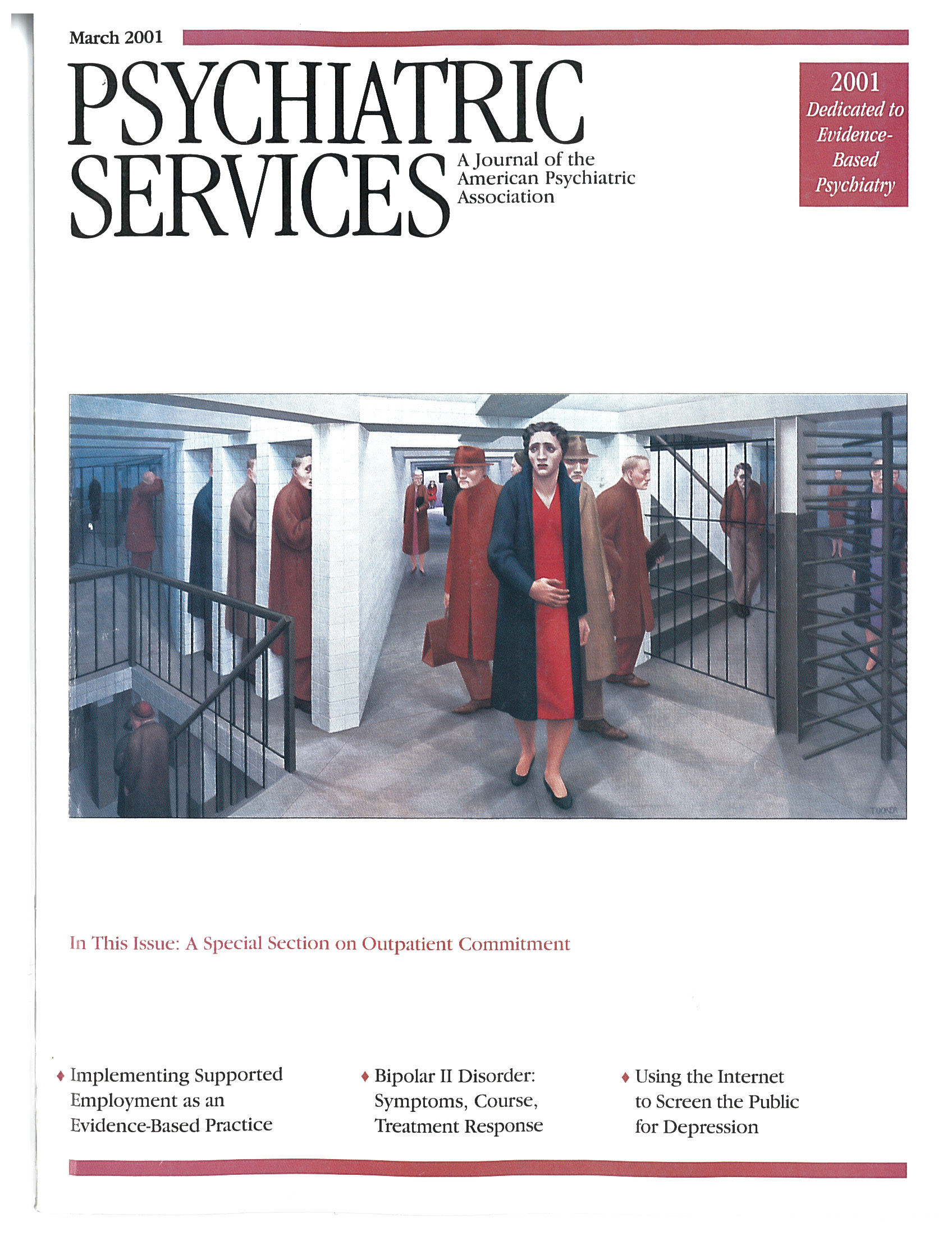Implementing Family-Friendly Services
To the Editor: We were delighted to read the proposal for implementing collaborative, family-friendly services in community mental health centers (CMHCs) presented by Mueser and Fox in the November 2000 issue (1). We support their suggestion that each CMHC designate an individual as the director of adult family services. This person would have administrative support to develop, coordinate, and oversee collaborative services to family members of consumers with severe mental illness.
We would like to suggest some additional solutions based on our three years of working on a federal community action project to integrate family education into the treatment of adults in a public behavioral health system. Several meetings and focus groups were held for providers, consumers, family members and administrators, and three barriers were identified—confidentiality issues, providers' reluctance to deliver a nonbillable service, and the need for staff training in collaborating effectively with family members.
Consensus was reached on the following implementation activities.
• Secure a commitment from the county mental health administrator that if providers can document the delivery of family education services, the county will consider giving program funding to each participating agency or will include family education as an in-plan service when the county shifts to managed care.
• Develop and use family-friendly procedures and consent forms. Ask each consumer to identify at least one family member or significant other who can receive educational services that could enhance treatment outcomes. Ask the consumer to specify what types of confidential information, if any, can be shared in the process of family education.
• Implement a single-family model of collaborative family education—family consultation (2)—for designated family members. Complement it with group interventions by referring family members to support groups and family education group programs such as the 12-week Family-to-Family education course sponsored by the National Alliance for the Mentally Ill. In some states the eight-week family education program called Journey of Hope (version 2.0) is also available through the Journey of Hope Institute in Minot, North Dakota.
• Produce a training manual on integrating family consultation into treatment of adults with severe mental illness. Train supervisors in all case management, partial hospital, outpatient counseling, and residential programs to use the manual to train their staff. All staff should receive a copy of the manual.
• Ask all supervisors to identify one or two staff members interested in family education who will assist them in implementation.
Although it is too soon to know the long-term outcomes of these activities, we hope that taking such steps will shed new light on the difficulties experienced by most CMHCs in providing evidence-based services to families of persons with severe mental illness (3,4). Building on Mueser and Fox's proposal, we suggest that this problem is solvable, but it may require a multifaceted solution. In the absence of a grant to implement evidence-based services, educating county administrators about the costs of ignoring this problem may help start the process of system change.
Ms. Mannion is affiliated with the Training, Education, and Consultation Family Center of the Mental Health Association of Southeastern Pennsylvania. Dr. Solomon is with the School of Social Work at the University of Pennsylvania in Philadelphia. Ms. Steber is with the Center for Mental Health Policy and Services Research in the department of psychiatry at the University of Pennsylvania.
1. Mueser KT, Fox L: Family-friendly services: a modest proposal (ltr). Psychiatric Services 51:1452, 2000Link, Google Scholar
2. Solomon P, Draine J, Mannion E, et al: Impact of brief family psychoeducation on self-efficacy. Schizophrenia Bulletin 22:41-50, 1996Crossref, Medline, Google Scholar
3. Dixon L, Goldman H, Hirad A: State policy and funding of services to families of adults with serious and persistent mental illness. Psychiatric Services 50:551-553, 1999Link, Google Scholar
4. Dixon L, Lyles A, Scott J, et al: Services to families of adults with schizophrenia: from treatment recommendations to dissemination. Psychiatric Services 50:233-238, 1999Link, Google Scholar



